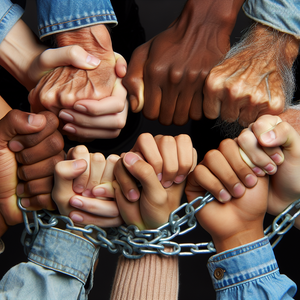The Unseen Impact of a BCBA on Family Dynamics

BCBAs are trained professionals who utilize the principles of Applied Behavior Analysis (ABA) to develop tailored interventions for individuals, especially those with Autism Spectrum Disorder (ASD) and other developmental challenges. Their responsibilities typically include conducting behavioral assessments, creating individualized treatment plans, and training caregivers and family members on effective strategies. While their primary focus may be on modifying specific behaviors, their influence can reverberate throughout the family unit.
The Ripple Effect on Family Dynamics
BCBAs play a crucial role in promoting effective communication within families. By teaching individuals to express their needs and emotions more clearly, BCBAs provide families with the tools necessary to understand and support one another. For example, the Johnson family saw significant improvements in their son Ethan's ability to articulate his feelings after a BCBA introduced visual supports and communication strategies.
Strengthened Relationships
The implementation of behavior intervention plans can significantly strengthen relationships among family members. BCBAs empower parents with effective behavior management techniques that reduce stress and frustration, facilitating more positive interactions. The Martinez family experienced this firsthand; after facing constant conflicts due to their daughter’s anxiety, they sought the help of a BCBA.
Empowerment and Support for Caregivers
Caring for an individual with developmental disabilities can be overwhelming, and BCBAs recognize the need to support and empower caregivers. For the Smith family, the guidance of a BCBA transformed their experience, leading to increased resilience and a more positive family atmosphere.
Changes in Family Roles and Responsibilities
The involvement of a BCBA can lead to a redistribution of caregiving responsibilities within the family. The Thompson family found that, with their BCBA's assistance, both parents became actively engaged in their child's treatment plan, relieving stress and reinforcing the family unit.
Personal Narratives: Voices from the Field
To illustrate the impact of BCBAs on family dynamics, we interviewed several families who have experienced this transformation. The Rodriguez Family shared, 'Our BCBA became part of our family. She didn’t just focus on our son’s behavior; she helped us understand each other better.' The Green Family noted, 'Before our BCBA, we felt lost and isolated. Now, we attend support groups together, and we feel empowered to advocate for our daughter.'
The role of a BCBA extends far beyond the immediate goal of modifying behavior. Their work has significant implications for family dynamics, fostering improved communication, strengthened relationships, and empowered caregivers. As families navigate the complexities associated with developmental disabilities, the unseen impact of BCBAs becomes increasingly apparent. By focusing on the entire family system, BCBAs not only help individuals achieve personal goals but also cultivate a more supportive and connected family environment.
Behavior Analyst
Autism treatment centers, educational institutions, and healthcare organizations
Core Responsibilities
Conduct functional behavior assessments to identify triggers and develop personalized intervention plans.
Collaborate with families and caregivers to implement behavior modification strategies across various settings.
Monitor and analyze data to evaluate the effectiveness of interventions and make necessary adjustments.
Required Skills
Proficiency in Applied Behavior Analysis (ABA) principles and techniques.
Strong communication skills for training and supporting families.
Experience in working with individuals with Autism Spectrum Disorder (ASD) and related behavioral challenges.
Family Support Specialist
Non-profit organizations, community health agencies, and educational institutions
Core Responsibilities
Provide resources and guidance to families navigating developmental disabilities and mental health challenges.
Facilitate support groups and workshops to enhance family coping strategies and communication skills.
Collaborate with healthcare professionals to ensure families have access to necessary services and support.
Required Skills
Background in social work, psychology, or counseling, with a focus on family systems.
Ability to foster trust and rapport with families in challenging situations.
Experience in conflict resolution and crisis intervention techniques.
Special Education Teacher
Public and private schools, special education centers, and educational therapy facilities
Core Responsibilities
Develop and implement individualized education plans (IEPs) tailored to the unique needs of students with developmental disabilities.
Utilize behavior management techniques to create a supportive learning environment.
Collaborate with families to ensure continuity of care and learning strategies at home.
Required Skills
Certification in special education and knowledge of behavioral intervention strategies.
Strong organizational and communication skills to engage with parents and other educators.
Experience in teaching students with diverse learning needs and disabilities.
Clinical Psychologist specializing in Developmental Disorders
Private practice, hospitals, research institutions, and educational facilities
Core Responsibilities
Conduct assessments and provide therapy for individuals with developmental disorders, including ASD.
Work with families to provide psychoeducation and strategies for managing challenging behaviors.
Collaborate with BCBAs and other healthcare professionals to create comprehensive treatment plans.
Required Skills
Doctorate in psychology with a focus on developmental or clinical psychology.
Strong analytical skills for conducting assessments and interpreting data.
Experience in family therapy and understanding of behavioral interventions.
ABA Therapy Technician
ABA therapy clinics, schools, and community service organizations
Core Responsibilities
Support BCBAs in implementing behavior intervention plans and data collection during therapy sessions.
Provide direct support to individuals with developmental disabilities in various environments, including homes and schools.
Educate family members on daily strategies to reinforce skills learned in therapy.
Required Skills
Background in psychology or behavioral science, with ABA training preferred.
Patience and strong interpersonal skills to engage effectively with clients and families.
Ability to observe and document behavioral changes accurately.


